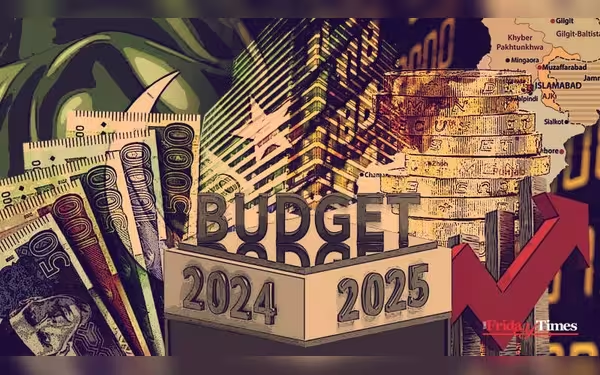Thursday, July 4, 2024 06:01 PM
Pakistan's Fiscal Policy Under Scrutiny for Wealth Inequality
- Taxation measures to tackle wealth inequalities
- Historical budget favoritism towards the wealthy
- Challenges in addressing income disparities and economic growth
 Image Credits: thefridaytimes
Image Credits: thefridaytimesThe article discusses Pakistan's ongoing struggle with wealth inequality, highlighting the need for fair taxation policies and prioritizing the welfare of all citizens to promote economic growth and social justice.
Concentrations of extreme wealth can have negative effects on the political process and democracy. To tackle wealth inequalities, governments have the authority to implement taxation measures such as enforcement, closing loopholes, raising rates, and introducing new forms of taxation.
Every year during budget announcements in Pakistan, there is a recurring question about what an ideal budget should include at federal and provincial levels. The general agreement is that an ideal budget should strive for long-term prosperity by promoting justice and equality across all economic classes in society.
Efforts need to be directed towards uplifting those experiencing financial hardships and limited opportunities, rather than allowing citizens to remain in poverty. Fiscal policies, including taxation and public spending, should prioritize welfare programs, education, and the creation of employment opportunities.
Historically, budgets in Pakistan have favored the wealthy, leading to disappointment among the general population. The recent budget for the fiscal year 2024-25 continues this trend, with tax burdens increasing for lower-income and middle-class individuals despite rising inflation.
The neglect of the education and health sectors by governments violates constitutional mandates, leaving millions of children out of school. The failure to address issues like child labor and provide free education as promised by the constitution highlights the systemic challenges.
The tax system in Pakistan disproportionately burdens the poor and middle class while allowing the rich to evade taxes through various schemes. The lack of collaboration between federal and provincial governments hinders economic growth and tax collection efforts.
A shift towards rational economic and tax policies is crucial to promote growth and address income disparities. The focus on meeting revenue targets at the expense of vulnerable segments of society has created ongoing fiscal challenges.
The high sales tax rates on goods and services further worsen economic issues, impacting industries and hindering job creation.
It is imperative for Pakistan to address wealth inequality through fair taxation policies and prioritize the welfare of all citizens. By implementing measures that promote economic growth and social justice, the country can work towards a more equitable and prosperous future for all.













